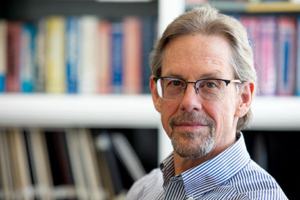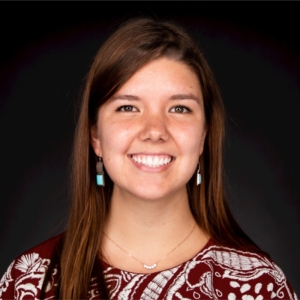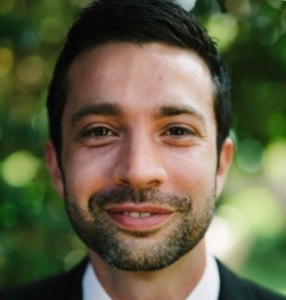Webinar on 11 August 2022
Let’s build solar panel factories for
underserved communities
Imagine a solar panel manufacturing renaissance in the United States. The U.S. has largely given up on the idea that we can produce solar domestically, but the nonprofit CHERP Solar Works has set out to change this, and to do so in a way that promotes equity and justice. Their mission is to extend the reach of renewable energy to underserved communities, create green-sector jobs — particularly for those with barriers to entry in the workforce — stimulate local economies, pursue environmental justice, and reduce greenhouse gas emissions.
Through a licensing agreement with idealPV, CHERP will be producing the world’s most advanced solar panels in a nonprofit assembly factory in Pomona, California. CHERP is also incubating a network of distributed manufacturing centers, what they’re calling the Locally Grown Power national solar factory network, in economically disinvested and environmentally burdened communities across the country.
CHERP’s model makes solar available to low-income families at no cost to them, cultivates local community wealth, and gives communities more control over the way energy is deployed. Now more than ever, climate change demands we take bold moves to protect our planet, and CHERP is making these moves.
In this webinar, CHERP explained their model and how you can start a locally owned nonprofit solar panel assembly factory in your community.
Seneca Environmental (formerly Seneca Solar) brought this information to our network as part of our mission to profitably and equitably deliver innovative renewable energy solutions that heal the earth, on behalf of current and future generations.
Speakers
 Devon Hartman
Devon Hartman
Devon, Executive Director of CHERP, Inc, is focusing his 35 years of experience in architecture, construction, and strategic business development on the field of energy efficiency and solar PV. He is an expert in strategic business systems development, consumer-facing sales and marketing strategies and energy efficiency management operations in home performance. After retiring from his decades-long role as Co-Founder and President of HartmanBaldwin Design/Build, Inc., he founded CHERP, Inc. (Community Home Energy Revolution Project) to form collaborative partnerships with cities, counties, community organizations, and contractors to promote sustainable building practices and the reduction of fossil fuel use in buildings throughout California and beyond.
Devon’s award-winning architecture and construction work has garnered over 50 national awards, including the Gold Nugget Grand Prize from the Pacific Coast Builder’s Association and the Grand Prize Design Award from Remodeling Magazine. His work has been featured in numerous articles and interviews including Preservation, Wall Street Journal, Remodeling Magazine, LA Times and HGTV and he has worked in France, Peru, Brazil and Egypt. Devon is a General Contractor, Designer, Developer of VGM Santa Barbara, LEED AP, Green Point Rater, lecturer; consultant; and community organizer/educator.
 Hanna Sheridan
Hanna Sheridan
Hanna is an enrolled member of the Seneca Nation, Bear clan. Her upbringing, culture, and educational background have shaped her deep motivation to work for the betterment of indigenous nations and to heal the relationship between people and Mother Earth, our shared home. Hanna graduated from Yale University, where she earned a bachelor’s degree in History with a focus in Native Studies. At Yale, Hanna was deeply involved with the Yale and Ivy Native communities, which inspired her to work for Indian Country.
Hanna previously worked for the Seneca Gaming Corporation (SGC), a wholly owned, tribally chartered corporation of the Seneca Nation that operates all of the Nation’s Class III gaming operations in Western New York. Hanna then moved to Seneca Holdings, LLC, whose purpose is to pursue non-gaming related investment and development opportunities to diversify and strengthen the Seneca Nation’s economy. Through Holdings, Hanna joined the Seneca Environmental team, where she is beginning her career in tribal energy, focusing on creating immediate progress and impactful change. In the fall of 2022, Hanna will begin an MBA program at the University of Buffalo.
Indigenous culture and teachings provide clear guidance on aligning our human activities around the impacts they will have on seven generations into the future. The destruction of the living world and the accelerating climate emergency are a call to a rapid and equitable realignment of our economy and our civilization, a shift that Hanna is helping to create as Engagement and Operations Coordinator for Seneca Environmental.
 Matt Renner
Matt Renner
Matt serves as Vice President of Seneca Environmental, a tribally owned and controlled Earth-healing solutions company focused on helping commercial customers achieve ambitious climate goals while supporting the long-term well-being of the Seneca Nation and other Indigenous people. His work focuses on partnership development and customer acquisition to create unprecedented collaboration and profitably accelerate climate action.
Matt has worked as a nonprofit executive in clean energy, climate policy, and journalism for over a decade, focusing on the near-term social and economic impacts of climate change. He began his career as an investigative reporter and later became the Executive Director of the World Business Academy to focus on the transition to a climate-constrained economic paradigm.


